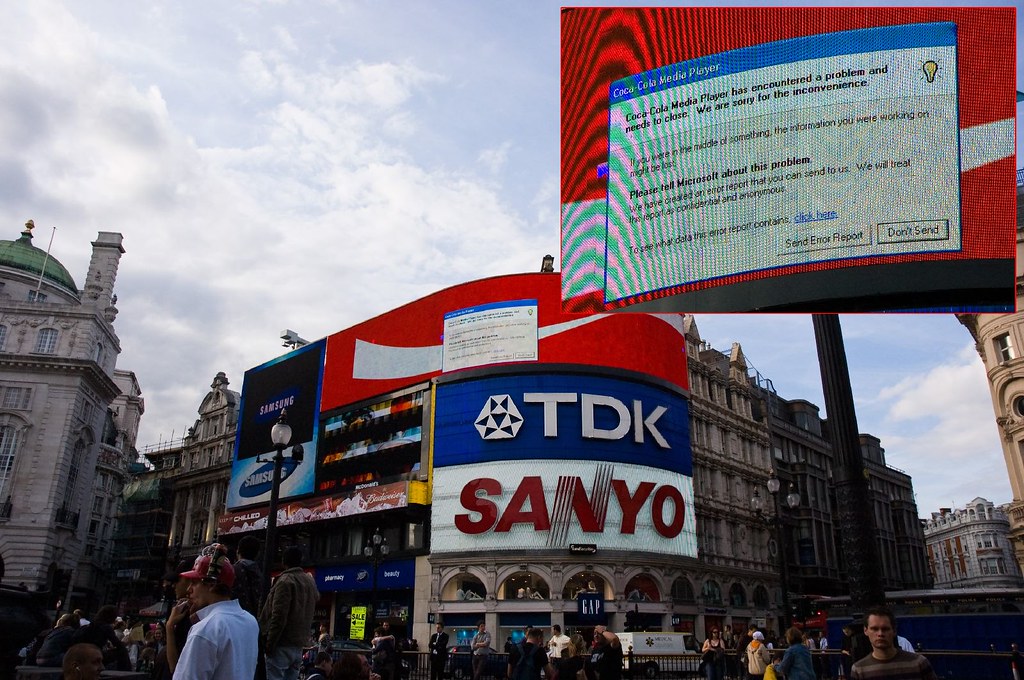
On the occasion of the approaching EuroIA 2007, I have asked Eric Reiss the following 5 questions:
(Interview auf Deutsch)
1. Eric, you are one of the co-founders of FatDUX, a user-experience design company in Copenhagen. Just like last year in Berlin, this EuroIA Konferenz in Barcelona is co-sponsored by FatDUX. So why are we all flying to Barcelona and not to Copenhagen?
First of all, Jan, thanks for inviting me to share your strudel Your group of IAs in Berlin are to be congratulated for their many, valuable local-group initiatives.
So, why are we flying to Barcelona instead of Copenhagen? Well, there are a couple of reasons. First, the Summit committee wanted to do more to get the Latin portion of Europe involved in the Summit. Last year in Berlin, we had terrific presentations from Italian and Spanish IAs and we want to build on this momentum. This year, we’re hoping we can get IAs from Greece, Portugal, and France more actively involved, too. These are fairly mature markets from an IT point of view, but still quite insular when it comes to pan-European networking. The whole point of EuroIA is to help build an international community.
And as to Copenhagen, there are already a lot of conferences here. We didn’t think there was a need for yet another. For example, we have Reboot and Mark Hurst’s EuroGEL. And there are a bunch of others, including commercial events such as the Nielsen-Norman usability lectures and the IntraTeam intranet conference. FatDUX is working on local events, too.
But who knows? Maybe we’ll go back north for the next EuroIA.
Regarding FatDUX sponsorships, we actually sponsor a lot of stuff that isn’t of any direct benefit to us in Denmark. In addition to EuroIA, we also helped sponsor the UPA conference in Austin, Texas and will be a sponsor at OZ in Sydney, Australia. But since we have clients based in the U.S., Germany, and elsewhere, we don’t really view Denmark as our home market. We’re a fairly international organization when all is said and done – and we hold a lot of telephone conferences in the middle of the night to accommodate clients and associates in various time zones.
Earlier this year in Las Vegas, we sponsored six student registrations and we’ll be doing something similar in Barcelona. We’re firm believers in the importance of education and spend a lot of time and money creating and supporting educational initiatives. And we like to drink, so we’ll be sponsoring the EuroIA cocktail hour again this year along with our good friends in Amsterdam, User Intelligence.
2. The EuroIA 2007 theme is Translating Information Architecture. What kind of translations do Information Architects face on a regular basis?
The title of this year’s event has two meanings. First, there is the obvious issue of sharing knowledge among people who do not have English as their first language. So it’s a question of literally translating concepts. Second, we also know that concepts need to be adapted to local markets – some markets are mature, some are just learning the value of the internet and the importance of IA. This is also a kind of translation.
In fact, both of these interpretations are closely related. If you examine internet usage and the “state-of-the-art” in nations across Europe, you’ll usually find a correlation between those countries that feel comfortable using English and the level of IA maturity. In general, in countries where films and TV programs are subtitled rather than dubbed, and where English is introduced in school at an early age, you will often find more active internet communities. I realize that this is a huge generalization, but there is an undeniable link.
Sadly, most of the IA literature is still in English (with only a few notable exceptions). Most of the conferences are in English (but this is changing – this year there will be both a German and Italian IA conferences). Most of the discussion lists are in English. And a surprising number of IA blogs are in English.
So, our task at EuroIA is to help individuals become more comfortable meeting colleagues from other countries and to help them find common ground. And in those countries that have been been isolated because of politics and language – Hungary and Poland to name just two – our job is to help bring these IAs into the mainstream of thought. And to let them know that good ideas are always more important than good pronunciation.
A case in point: a few days ago, I had a great conversation with a fellow from Stetin, Poland. He spoke no English and I speak no Polish. But we discovered that we both knew some Swedish – so this became our common language. And we had a great exchange despite our limited vocabulary.
As you know, the Information Architecture Institute recently relaunched their website, which includes translations of key IA-related articles. And we are also working to create a multi-language glossary. Unfortunately, the woman who was coordinating the glossary initiative has become very ill. So we’re looking for volunteers who can continue this important work. And I will be actively recruiting in Barcelona.
3. In the field of genetics, “translation” means the process by which a certain messenger molecule specifies a concept for protein synthesis. It's a very important process. How important do you consider IA within Website "synthesis"?
Well, this is really a standards discussion, isn’t it? Or perhaps even a definition question. Personally, I really don’t care how people define “information architecture” because each definition invariably reflects a person’s own work situation. In other words, an IA on a small project, who is also the main content provider, and maybe even the programmer/designer, has a very different job than a thesaurus developer for a huge corporation. Often, people confuse the definition of IA with a job description. These are very different things.
What is the definition of a “mechanic”? If you fix cars, your job will be very different than if you fix washing machines. But both jobs probably require wrenches and screwdrivers. Just like the peptides and ribosomes in protein synthesis, our tools – persona, use-cases, contextual enquiry, card-sorting, focus groups, etc. – help create uniform high quality across projects. The tools are our amino acids. And you can put them together in countless ways.
Over the past 10-15 years, we have developed many tools and processes that are now widely used. They make it possible to synthesize across geographical, cultural, and political boundaries – and from project to project. I’m particularly proud that the Seven A’s process outlined in my book on IA back in 2000 has been adopted by so many, as well as the Web Dogma `06 I introduced in Vancouver last year. The dogma, in particular, is now available online in several languages.
4. Information Architecture is a very interdisciplinary discipline. Very much like Cognitive Science for example, where you have influences from psychology, philosophy, computer science, anthropology and linguistics. Being such a mixed Science, does Information Architecture have internal translation challenges, too?
Oh, absolutely. That’s why our glossary project is so important. What is the German translation of “contextual enquiry”? There are probably several terms. And in France, there are at least three different terms used to describe “information architect”. So, the glossary also helps us create a baseline for the development of IA in individual countries. I often see this happen in a more ad hoc fashion at international conferences. People with very different titles say to one another, “Gosh, that is exactly what I do, too.”
As you point out, IA is very cross-disciplinary. Even the term “concept” means very different things depending on who you talk to. An advertising agency will think of “concept” as a big idea, often visual. A programmer might assume “concept” to refer to “concept-oriented programming”. And an IA will probably think of “concept” as the site’s functionality rather than how it looks or how it was programmed.
In time, we’ll probably straighten out the internal definitions. Externally, I don’t think we ever will. After all, the building architects don’t even want us to use the word “architecture”, which to them refers to a very different discipline.
5. Eric, you serve currently on the Board of the Information Architecture Institute and are its President. You are also Chairman for the EuroIA Summit committee and are on the steering committee for the 2008 IA Summit in Miami. Regarding Information Architecture from a global view, what are the hot topics within IA right now?
Good question, Jan. Actually, the “hot topics” depend on whether you’re looking at these internally or externally.
Within the community, we’re concerned about the IAs who no longer consider themselves IAs. They are now “consultants”. Personally, I think it’s vitally important that the link between strategic and tactical IA is maintained. Otherwise, we will be giving away this part of our work to the business analysts at the big consulting houses and ad agencies. This would be disasterous. When we do the tactical work – thesaurus and taxonomy development, SEO etc. – we need more than just basic verbal support from top-level executives – we need them to understand the “why” of our work, not just the “what”. This is why IA representation at top-level meetings is so critical. The strategic IAs usually have easier access to these executives, especially since web operations are finally becoming an integral part of the business plan; they are no longer ill-conceived subsidiaries in cyberspace with no real accountability.
Externally, we also need to get people to understand who we are and what we do. During the summer of 2007, the magazine National Geographic, had an article on the Swedish naturalist, Carl Linnaeus. He was named as the world’s first “information architect”, which shows that our profession is gaining recognition. But we’ve still got a long way to go.
On a more global level, we have got to figure out how to deal with multiple languages. This is particularly true when it comes to intranets. What information should be available in all languages? What information is strictly local? What local information is relevant for neighboring markets (for example Spain/Portugal or a region such as Scandinavia, but not for all markets?) Even with sophisticated publishing procedures, how does one make sure that regional information is appropriately incorporated into all relevant local sites? Can we find out how to accomplish this without the necessity of translating everything to the lingua franca of the web, English? Here, we see a business problem that is also a usability problem, that will quickly become an IA problem. And we’re going to have to find an answer pretty soon.
A couple of years ago, I attended a Nielsen-Norman seminar in Amsterdam that was going to review of 14 “international” intranets. As it turned out, 10 were from the U.S., three were in London, and one was in Australia. Many of the attendees asked about multi-language problems but there was no immediate answer. Instead, we were encouraged to sign up on a special-interest mailing list. This was in November 2004 – and I haven’t heard a word since.
So, the problem remains – and is getting more critical all the time.
And, of course, the really hot topic is search engine optimization – which is also one of my least favorite subjects. I’m bloody sick of the SEO consultants who peddle bad solutions at inflated prices.
The truth is, SEO isn’t black magic: you create good content, you add relevant metadata, and you write clean code. It’s hard work, but there isn’t anything mysterious about it.
And the “success stories” aren’t always happy…
We had a hardcore business-to-business client last year that was convinced that their company would not prosper unless they got at least 1000 hits a day. Even after they learned the difference between “hits” and “user sessions” they still wanted lots of site traffic.
I asked them what they would do if they got just two solid requests for proposals each month. Since they were in an incredibly specialized industry, a serious answer to an RFP took almost a week to formulate – and several senior people were involved in each one. As such, our client concluded that they didn’t really have the manpower to answer more than one serious RFP each month. So, the natural next question was, why did they feel the need to get so many site visitors? After much discussion, we were allowed to create very specific metadata that virtually eliminated “accidental” visitors.
And the conversion rate improved. Markedly.
Within a month, they actually started to get more meaningful visits to their site – perhaps 100 a week – all from companies specifically interested in their services. I guess our work must have been successful – when I checked their site last week, they’d pulled most of the metadata out of their code.
In a couple of months (or a couple of Google indexings), their conversion rate is going to be back to nil. I’m curious who’s going to get the blame. The silly webmaster who deleted the metadata or us.
I keep hoping that at some point the education will kick in and our clients will get smarter. But there is no light at the end of the tunnel…yet. We’ve got lots more work to do.
In the meantime, Jan, thanks again for giving me this opportunity to share my views with you and your colleagues in Germany. Grüß aus Kopenhagen. Véale en Barcelona!











